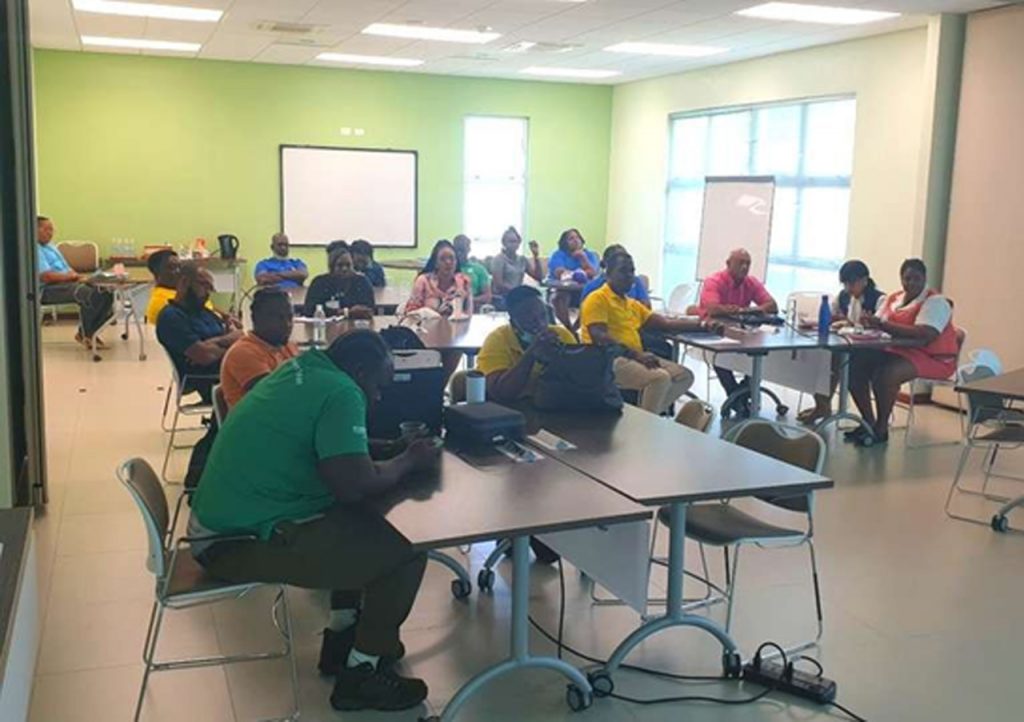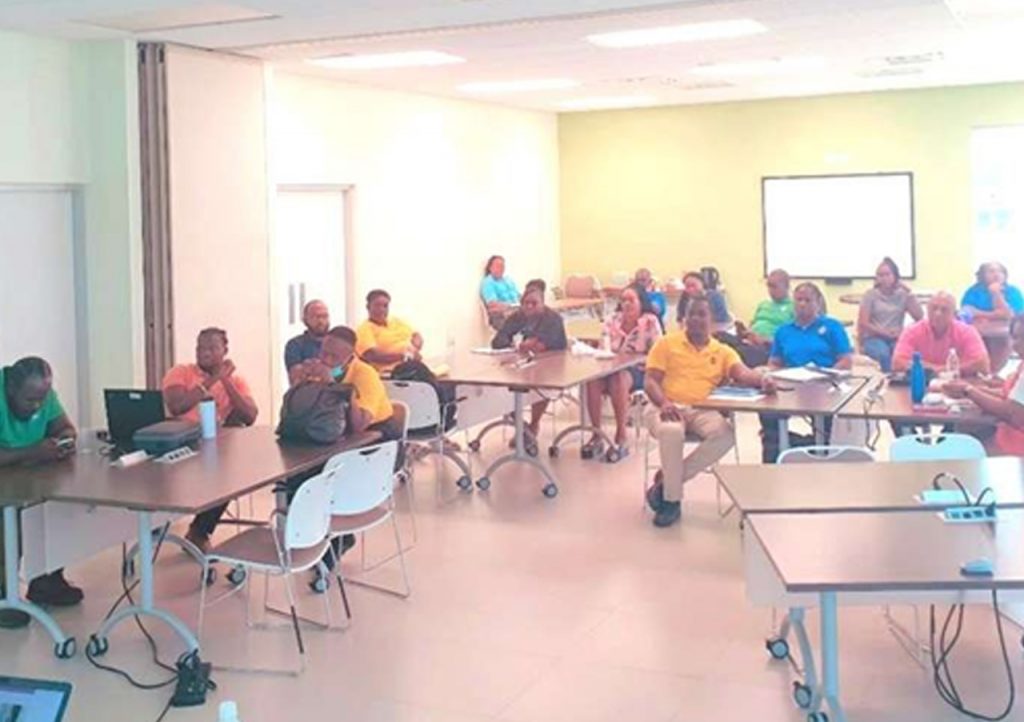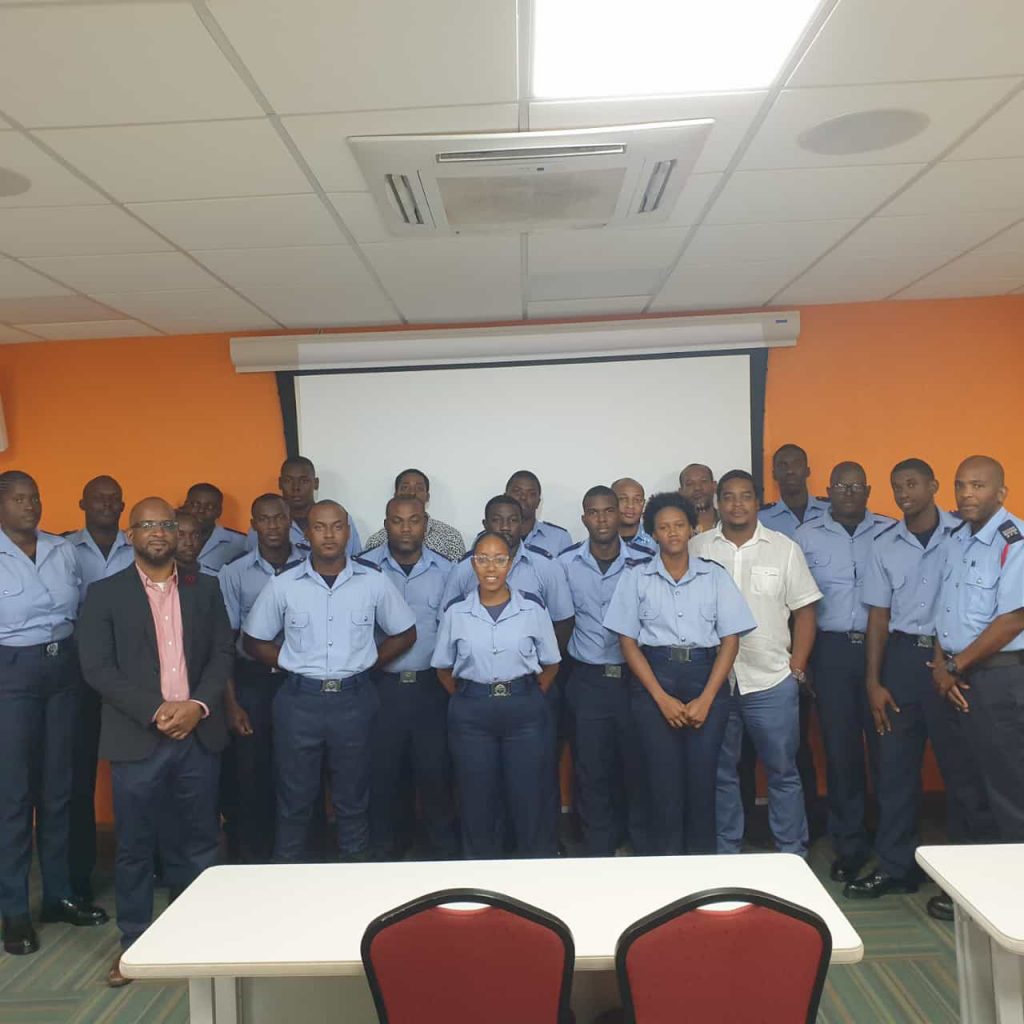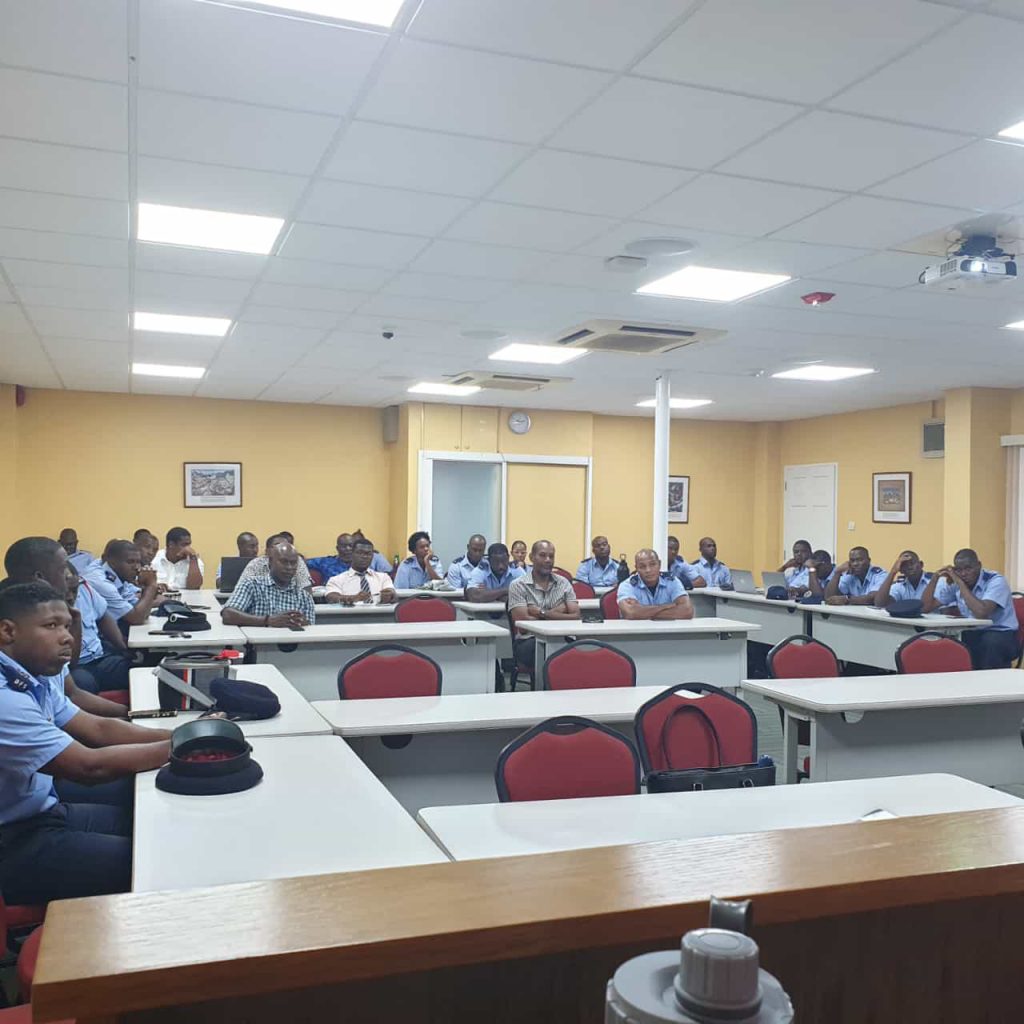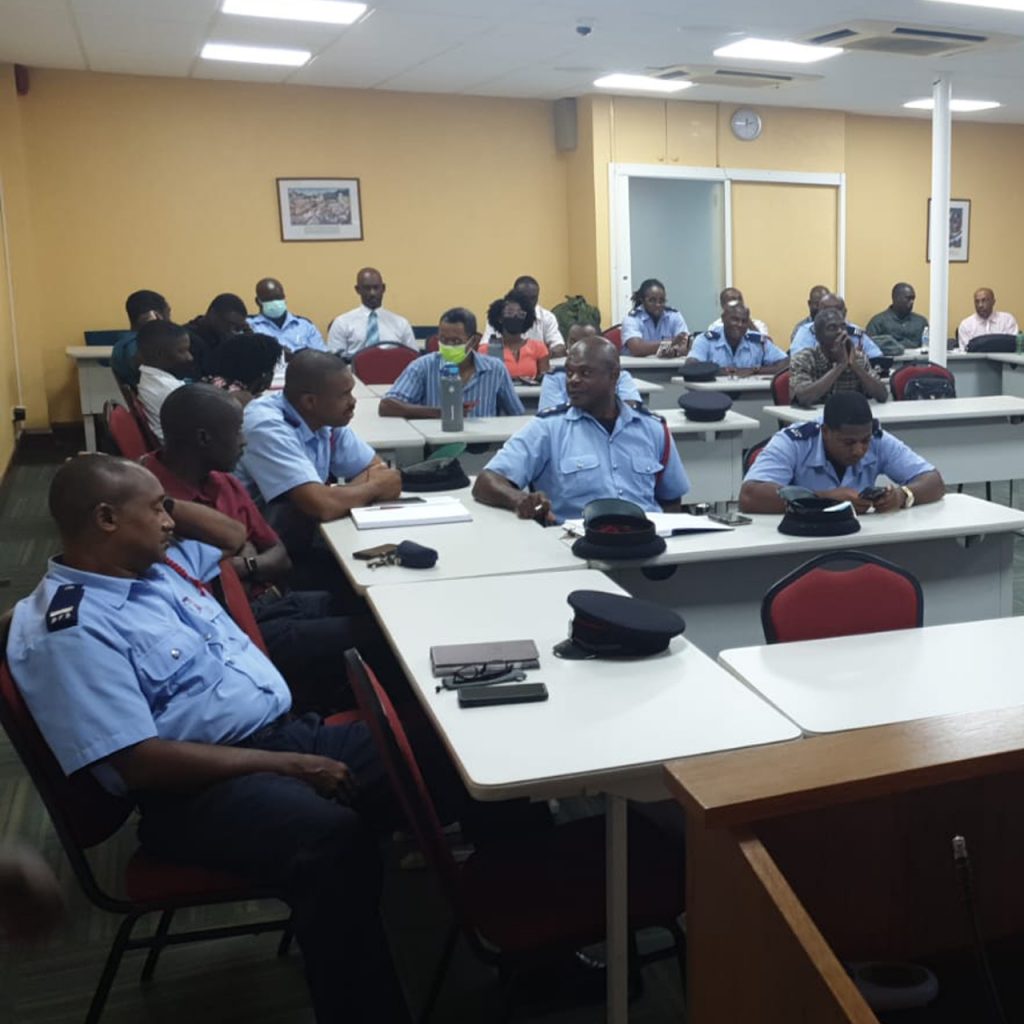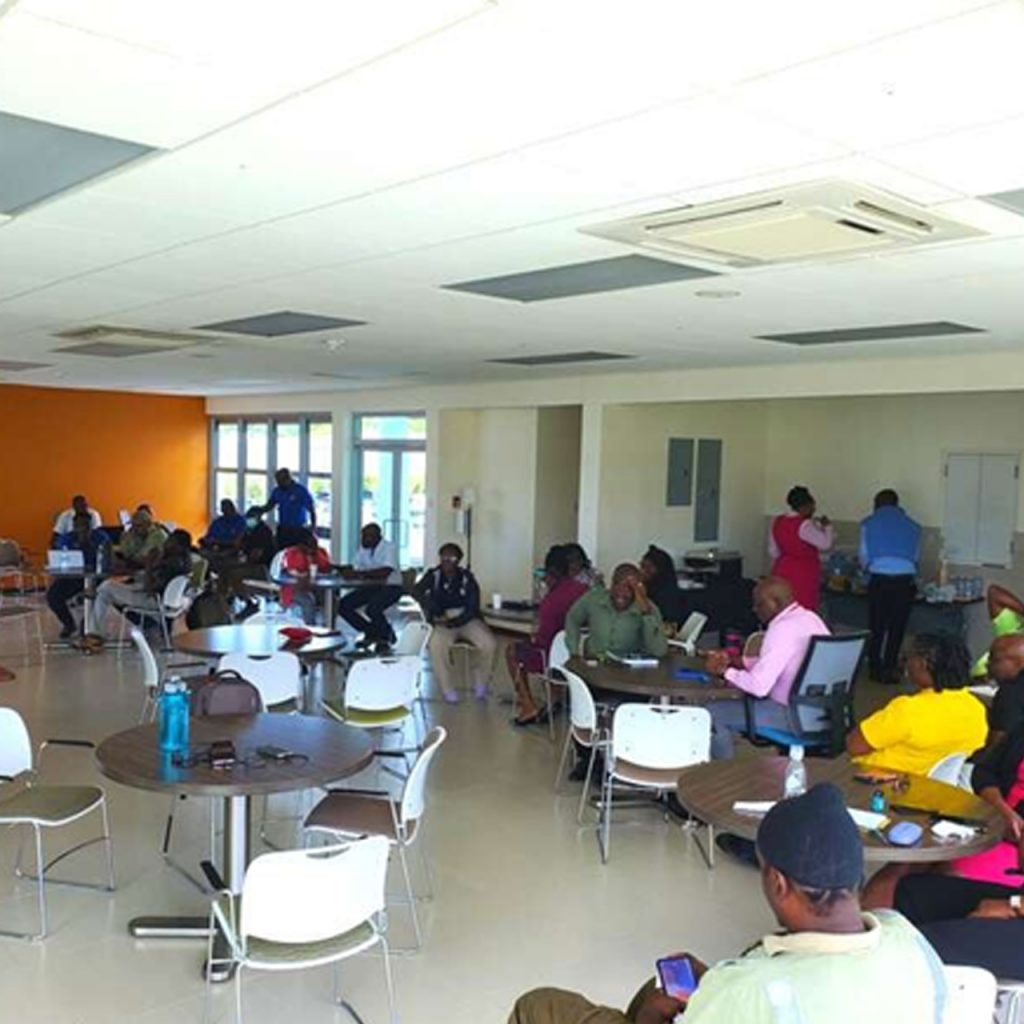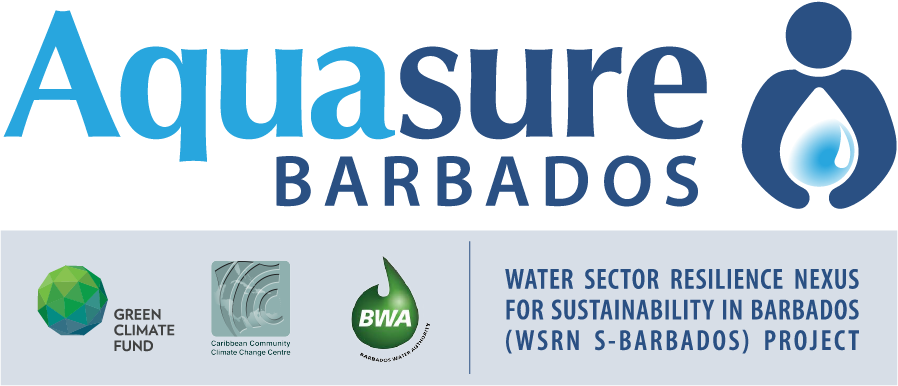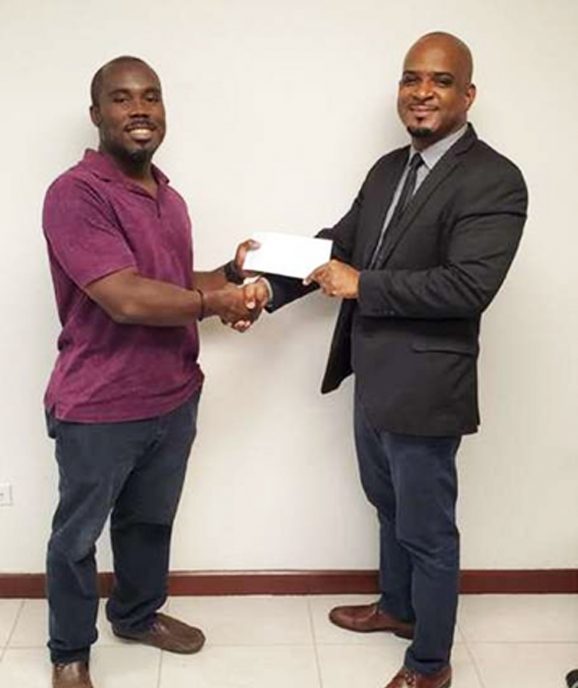Certification of 250 Persons
This consultancy specifically seeks to train and certify 500 persons inclusive of Barbados Water Authority staff and other allied government agencies in Climate Change, Biosecurity and Water Infrastructure Vulnerability. Dr. Karl Payne, a hydrogeological engineer, with Centre for Environmental Resource Management Studies (CERMES) was the other key team member.
The main objective of the WSRN S-Barbados project is to transform Barbados’ society into one that is more aware of the water cycle, and the climate change impacts which are threatening the island’s drinking water supply; create resilience to severe weather impacts; reduce greenhouse gas emissions; reduce consumption; promote appropriate uses of diverse water sources and encourage legislation to support climate smart development and water sector resilience.
According to the Project’s Biosecurity Action Plan (BAP), WSRN S-Barbados will mainstream biosecurity into all activities – foster utility/university/community/private sector partnerships, promote stakeholder engagement, exchange knowledge, build workforce and support entrepreneurship opportunities – to increase resilience of people and the water sector of Barbados to climatic natural disasters like droughts, tropical storms, and hurricanes.
At the July 25, 2022, launch of the certificate programme, Director of the Centre for Biosecurity studies at University of the West Indies (Cave Hill), Dr. Kirk Douglas, underscored the importance of interrelatedness of climate, biosecurity, and water infrastructure vulnerability and how biosecurity examines these cross-cutting themes of the overall initiative, due to the cascading impacts of climate change.
“The BWA staff remain the key knowledge experts due to their extensive experience and intimate knowledge of the country’s water challenges which face the citizens and residents of Barbados. Yet the staff of other allied agencies such as the Barbados Fire Service also possess complementary experience and knowledge to the BWA to assist in effective water resource management. It reflects an understanding that cross-cutting issues such as climate change and water resource management requires multisectoral and multiorganizational approaches to disseminate information, experience, and expertise to facilitate effective resource allocation, use and management. Taking down institutional silos facilitates rapid interaction and dialogue which can create comprehensive solutions to existing challenges and problems among agencies.”
At the end of 2022 CBS Team trained a total of 276 persons – 171 males and 105 females (target was 250 persons) by end of February 2023 from the Barbados Fire Service (BFS) with the Climate Change, Water Infrastructure Vulnerability and Biosecurity Certificate Training as part of the WSRN-S project. We are aiming to train 500 persons in total. For modules 1 and 2 covered the hydrological (water) cycle, the global and regional picture on water availability in the face of a changing climate, climate change impact of water availability, water demand and also water quality, the salient features of Barbados’ water resources and the various factors that influence water resource management.
Access the full report here: https://aquasure.caribbeanclimate.bz/documents/
